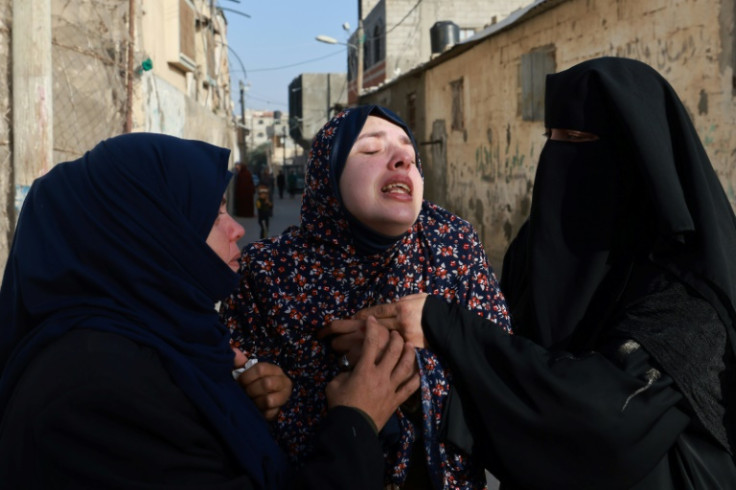[ad_1]
“They were all dead. Their father took them and left me behind,” said Rania Abu Anza, a 29-year-old grieving mother in Gaza.
After trying to conceive for 10 years, including three rounds of in vitro fertilisation (IVF), Rania gave birth to twins in October last year.
But at just five months old, babies Naeim (male) and Wissan (female) were killed in an Israeli airstrike that devastated the home of their extended family in the southern Gaza city of Rafah last week.
Wissan, the baby girl, was named after her father, a proud day labourer who insisted on giving his daughter his name.
While speaking of her babies, Rania said: “I didn’t get enough of them. I swear I didn’t get enough of them.”
Rafah, located on the border of the Gaza Strip and Egypt, was initially named as a place of refuge for Palestinian civilians who had been forcibly displaced by the Israeli Defence Force (IDF).
Since February, Rafah has been the target of Israel’s ongoing ground operation. According to Israel’s military, the large-scale invasion sets out to eliminate and destroy the proscribed terror group Hamas.
According to the Health Ministry in Gaza, Israel’s relentless bombardment of the Strip has killed more than 30,000 people. The ministry does not differentiate between civilian lives and Hamas fighters.
More than 85 per cent of Gaza’s original population, estimated at 2.1 million, have been internally displaced by the fighting.
Israel has responded to the mounting death toll, claiming that it avoids harming civilians and blames the Hamas for the deaths.
Israel has repeatedly accused militant group of using civilians as human shields, operating in tunnels under dense residential areas and positioning fighters and rocket launchers in civilian areas.
The Israeli embassy in the UK has since said that the estimated number of Hamas fighters killed is “between 10,000 and 12,000”.

AFP News
Gaza’s Health Officials told Associated Press that the striking, which took place late on Saturday, caused the building to collapse, killing Rania’s husband and 11 other members of her family.
Rania’s sister was named as one of the other victims, along with her nephew and a pregnant cousin.
Dr. Marwan al-Hams, the Director of the hospital where the bodies were taken, revealed that out of the 14 people killed in the house, six were children.
Dr. Marwan also noted that four men and four women were also killed in the attack.
After breastfeeding the twins at around 10pm, Rania said that she fell back to sleep beside her husbands and with Naeim and Wissam in each arm.
Just 30 minutes later, Rania’s life was changed forever. Shortly after the explosion hit, the house collapsed.
“I screamed for my children and my husband,” the 29-year-old told reporters while she sobbed and held a baby’s blanket close to her chest.
The strikes often come without warning and in the middle of the night, Rania explained.
While the Israeli military were questioned about the attack, the force refused to comment directly and noted that any airstrike “follows international law and takes feasible precautions to mitigate civilian harm”.
Despite Israel saying that it targets Hamas fighters, Farouq Abu Anza, a relative, said that there were no militants living in the house when it was hit.
Some 35 people were living in the house when it was struck, many of whom had been displaced from the north of Gaza and Gaza City, Farouk added.
[ad_2]

